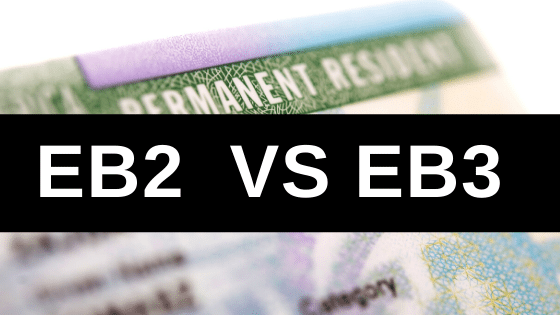Table of Contents
- Understanding the EB-1 Visa Category
- EB-1A
- Understanding the EB-2 National Interest Waiver (NIW)
- EB-2 NIW
- Comparing EB-1A and EB-2 NIW: Which Path is Right for You?
- Exceptional Ability vs. Extraordinary Ability
- Educational Background
- National Interest vs. Individual Excellence
- Employer Sponsorship
- Processing Times
For talented individuals aspiring to live and work in the United States, the EB-1 (Employment-Based First Preference) and EB-2 (Employment-Based Second Preference) National Interest Waiver (NIW) programs offer attractive immigration options. These pathways are designed for those with exceptional qualifications who can make significant contributions to the nation. In this article, we will compare the EB-1 and EB-2 NIW programs, helping you determine which one aligns better with your unique circumstances and goals.
For talented individuals aspiring to live and work in the United States, the EB-1 (Employment-Based First Preference) and EB-2 (Employment-Based Second Preference) National Interest Waiver (NIW) programs offer attractive immigration options. These pathways are designed for those with exceptional qualifications who can make significant contributions to the nation. In this article, we will compare the EB-1 and EB-2 NIW programs, helping you determine which one aligns better with your unique circumstances and goals.
The United States has long been a magnet for global talent, drawing individuals from diverse backgrounds who seek to fulfill their dreams and aspirations. The EB-1 and EB-2 NIW programs stand as beacons of opportunity for such individuals, providing avenues to not only achieve their personal and professional aspirations but also contribute meaningfully to the nation’s growth and development.
Under the EB-1 program, individuals with extraordinary abilities in fields such as the arts, sciences and business are recognized and welcomed with open arms. This program acknowledges the exceptional talents that individuals bring to the table and fast-tracks their path to permanent residency. It’s a testament to the United States’ commitment to fostering innovation and excellence.
On the other hand, the EB-2 NIW program places a strong emphasis on the national interest. It is tailor-made for those who possess advanced degrees or exhibit exceptional abilities and crucially, it allows applicants to bypass the often arduous labor certification process. This program reflects the United States’ recognition of the vital role that these individuals play in enhancing its economic, scientific and technological landscape.
Choosing between the EB-1 and EB-2 NIW programs can be a pivotal decision on your immigration journey. It’s essential to consider your specific qualifications, career objectives and the impact you wish to make in the United States. Factors such as your field of expertise, academic achievements and professional experience will play a crucial role in determining which program aligns better with your unique circumstances.
Ultimately, both programs present incredible opportunities for talented individuals to thrive in the United States while contributing to its continued growth and innovation. By making an informed choice, you can embark on a path that not only fulfills your dreams but also enriches the nation that welcomes you with open arms.
Explore this link for a more extensive examination of the topic: Employment Based Green Card Options: EB-1, EB-2 and EB-3
Understanding the EB-1 Visa Category
The EB-1 visa category is often reserved for individuals with extraordinary ability, outstanding professors and researchers and multinational managers and executives. For the purpose of this comparison, we will focus on the EB-1A subcategory, which is suitable for those with extraordinary ability in their field.
The EB-1 visa category is a significant pathway for foreign nationals seeking to establish themselves in the United States based on their exceptional abilities and contributions. Among the various subcategories within the EB-1 visa, the EB-1A subcategory stands out as a viable option for individuals possessing extraordinary ability in their respective fields.
The EB-1A visa is tailored for individuals who have achieved a high level of expertise and recognition in their domain, be it in the arts, sciences, business, athletics or other fields. It is a prestigious category that allows exceptionally talented individuals to self-petition for permanent residency in the U.S., bypassing the need for employer sponsorship.
Applying for the EB-1A visa necessitates a comprehensive demonstration of one’s extraordinary ability. This often includes presenting a robust portfolio of achievements, awards, publications, patents and other significant contributions in the respective field. Expert letters of recommendation, highlighting the applicant’s impact and influence, play a crucial role in substantiating the claims of extraordinary ability.
One of the notable advantages of the EB-1A category is the absence of the labor certification process, which is otherwise a prerequisite for many employment-based visas. This exemption expedites the application process, allowing qualified individuals to move forward swiftly in their pursuit of permanent residency.
However, despite the appeal of the EB-1A visa, it is important to note that meeting the criteria for this category demands a high standard of accomplishment. The stringent requirements necessitate meticulous preparation and documentation to ensure a successful application. Seeking guidance from immigration experts and legal professionals well-versed in U.S. immigration laws can significantly enhance the prospects of a favorable outcome.
In essence, the EB-1A subcategory within the EB-1 visa classification stands as an attractive option for individuals with extraordinary ability. It provides a platform for highly skilled professionals to establish a permanent presence in the U.S., contributing their talents to the nation’s growth and development.
You can also read more about this here: Fiscal Year 2022 Employment-Based Adjustment of Status FAQs …
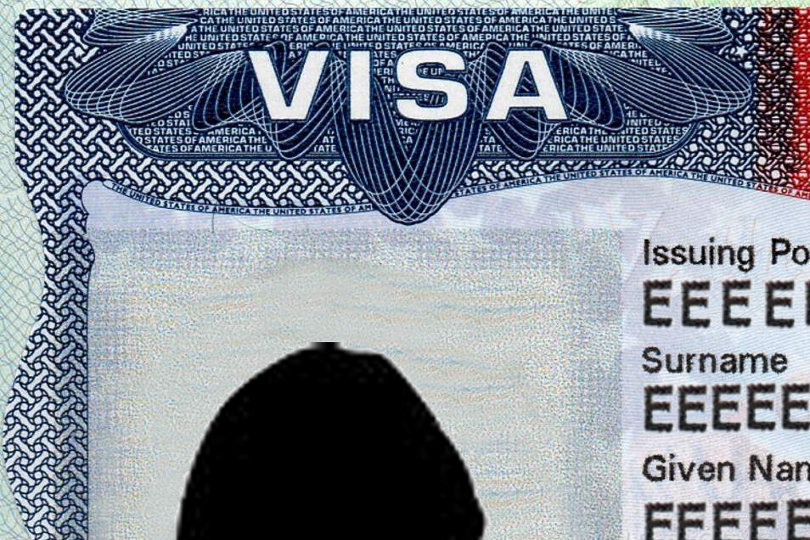
EB-1A
Extraordinary AbilityEligibility Criteria: To qualify for an EB-1A visa, applicants must demonstrate extraordinary ability in their field. This can be established through a sustained record of exceptional achievement and recognition. Key criteria include national or international acclaim, recognition by experts, a substantial body of work and a significant impact on the field.Benefits: The EB-1A category offers advantages such as exemption from labor certification, self-petitioning (no employer sponsor required) and faster processing times. Successful applicants can obtain a green card (permanent residency) in the United States.
Extraordinary Ability: The EB-1A visa category represents a unique pathway to U.S. immigration for individuals who have reached the pinnacle of success in their respective fields. To meet the eligibility criteria, applicants must not only possess exceptional talent but also provide compelling evidence of their extraordinary ability. This standard is designed to recognize individuals who have truly made a mark in their field and it sets a high bar for qualification.
Eligibility Criteria: To demonstrate extraordinary ability, applicants typically need to showcase a sustained record of exceptional achievement and recognition. This might include receiving national or international awards, prizes or honors for their work. They should also present evidence of their recognition by experts or peers in the field, such as testimonial letters or publications referencing their contributions. A substantial body of work, demonstrated through publications, exhibitions, presentations or performances, is another vital component of the application. Lastly, applicants must show how their work has had a significant impact on their field, influencing its direction or progression.
Benefits: The EB-1A category offers a range of benefits that make it an attractive option for highly accomplished individuals. One of the most significant advantages is the exemption from the labor certification process, which is typically required for most employment-based green card categories. This waiver significantly streamlines the application process and reduces the waiting time.
Moreover, the EB-1A visa allows self-petitioning, meaning that applicants do not require an employer sponsor to apply. This degree of independence and control over the application can be especially appealing to individuals who wish to maintain full autonomy over their immigration process.
Another benefit is the relatively faster processing times compared to many other green card categories. Successful EB-1A applicants can obtain permanent residency in the United States more swiftly, facilitating their plans to live and work in the country.
In conclusion, the EB-1A visa category is a prestigious avenue for individuals with extraordinary abilities in various fields. Its stringent eligibility criteria and high standards reflect a commitment to recognizing and welcoming exceptional talent to contribute to the United States. The benefits it offers, including exemption from labor certification, self-petitioning and faster processing times, make it a sought-after pathway for those who have truly excelled in their respective domains and aspire to make the United States their home.
For a comprehensive look at this subject, we invite you to read more on this dedicated page: Which category is better for a startup founder EB1A or EB2 NIW?

Understanding the EB-2 National Interest Waiver (NIW)
The EB-2 NIW program, on the other hand, is designed for individuals who can demonstrate that their work is of substantial national interest to the United States.
The EB-2 National Interest Waiver (NIW) program offers a unique opportunity for individuals with exceptional skills and talents. Unlike the conventional EB-2 category, which typically requires employer sponsorship and a labor certification process, the NIW program allows eligible candidates to self-petition, eliminating the need for a specific job offer or labor certification. Here’s an extended exploration of the EB-2 NIW program:
Exceptional Skills and Expertise: To qualify for the EB-2 NIW program, applicants must showcase their exceptional skills, expertise and achievements in their respective fields. These can range from the sciences, arts, business, academia, to other areas of substantial importance to the U.S.
National Interest Defined: Defining “national interest” can be nuanced. Generally, it entails demonstrating that the individual’s work has a significant and positive impact on the United States. This can include contributions to the economy, advancements in scientific research, improvements in public health or other areas critical to the nation’s welfare.
Freedom to Self-Petition: One of the program’s most notable features is that applicants can self-petition without the need for a U.S. employer to sponsor them. This independence allows individuals with extraordinary abilities to have greater control over their immigration process.
Evidence-Based Evaluation: Successful EB-2 NIW petitions rely heavily on providing compelling evidence of one’s contributions and the national interest they serve. This evidence can include publications, awards, patents, peer-reviewed research and letters of recommendation from experts in the field.
Benefits of Permanent Residency: A significant advantage of the EB-2 NIW program is that it leads to permanent residency in the United States, often referred to as a green card. This means individuals can live and work in the U.S. indefinitely and eventually apply for U.S. citizenship.
Job Flexibility: Unlike some other visa categories, the EB-2 NIW does not require applicants to maintain a specific job or employer. This flexibility allows individuals to pursue their research, projects or ventures without being tied to a particular organization.
Impact on U.S. Innovation and Growth: The EB-2 NIW program has played a pivotal role in driving innovation and economic growth in the United States. Many prominent scientists, researchers, entrepreneurs and artists have contributed significantly to their fields, enriching American society and the global community.
Strategic Immigration Policy: The EB-2 NIW program is a testament to the United States’ strategic immigration policy. By attracting and retaining exceptional talent, the U.S. bolsters its competitive advantage on the global stage, fostering an environment of innovation and progress.
Challenges and Documentation: Despite its advantages, the EB-2 NIW program is not without its challenges. Preparing a strong petition with comprehensive documentation is crucial and applicants often seek legal counsel to navigate the complexities of the process.
In conclusion, the EB-2 National Interest Waiver program serves as a valuable avenue for individuals with extraordinary abilities to contribute to the United States while pursuing their professional and creative endeavors. It embodies the nation’s commitment to attracting top talent and fostering innovation, ultimately benefiting both the individuals who immigrate under this program and the United States as a whole.
If you’d like to dive deeper into this subject, there’s more to discover on this page: USCIS to Implement Next Phase of Premium Processing for Certain …

EB-2 NIW
National Interest WaiverEligibility Criteria: To qualify for an EB-2 NIW, applicants must meet criteria related to educational excellence, exceptional ability and contributions to the national interest. This includes possessing an advanced degree, demonstrating exceptional ability and showcasing how their work benefits the national interest.Benefits: The EB-2 NIW program offers benefits such as exemption from labor certification, self-petitioning and faster processing times. Successful applicants can apply for a green card (permanent residency) in the United States.
The National Interest Waiver (NIW) is a significant and sought-after pathway for foreign nationals looking to secure a U.S. green card in the EB-2 employment-based category. Understanding the eligibility criteria and the advantages it offers is crucial for those considering this route.
Eligibility for the EB-2 NIW hinges on several key factors. First and foremost, applicants must demonstrate educational excellence, often by holding an advanced degree or possessing a notable track record of accomplishments and expertise in their field. Additionally, they must showcase exceptional ability in their respective profession, indicating a level of skill and expertise that sets them apart from their peers.
However, what truly distinguishes the NIW is its emphasis on contributing to the national interest of the United States. Applicants are required to illustrate how their work or contributions benefit the country as a whole. This can be in various fields, such as the sciences, arts, business or any other profession. It might involve research that addresses critical national issues, innovations that stimulate economic growth or artistic endeavors that enrich American culture. This aspect of the NIW often requires a carefully crafted and persuasive application that clearly outlines the significance of the applicant’s work to the United States.
The benefits of the EB-2 NIW program are substantial, making it an attractive option for many foreign nationals. Perhaps most notably, it allows applicants to bypass the cumbersome labor certification process, which is typically required for employment-based green cards. This streamlines the application process significantly and eliminates the need for a job offer from a U.S. employer. Individuals can self-petition, giving them greater control over their immigration process.
Moreover, the EB-2 NIW often boasts faster processing times compared to other green card categories. Once approved, successful applicants can apply for a U.S. green card, granting them permanent residency in the United States. This status provides not only the right to live and work in the country but also a pathway to U.S. citizenship if desired.
In conclusion, the National Interest Waiver is an appealing route for foreign nationals who excel in their fields and believe their work can significantly contribute to the United States. Its unique eligibility criteria and the advantages it offers, such as exemption from labor certification and faster processing times, make it a valuable option for those seeking permanent residency in the United States while benefiting the nation’s interests.
Don’t stop here; you can continue your exploration by following this link for more details: EB1 vs EB2: The Right Option For You | Ashoori Law

Comparing EB-1A and EB-2 NIW: Which Path is Right for You?
Now, let’s compare the two pathways to help you determine which one aligns better with your immigration goals:
Now, as you consider your immigration options, let’s delve deeper into a comparative analysis of these two pathways. This exploration will shed light on the unique attributes and advantages of each, empowering you to make an informed decision that aligns seamlessly with your specific immigration goals:
EB-2 National Interest Waiver (NIW):
Emphasis on Expertise: The EB-2 NIW program underscores the value of your exceptional abilities and advanced degrees. If you possess a noteworthy track record in your field, this pathway can be particularly appealing.
Streamlined Process: One of the standout features of the EB-2 NIW program is its exemption from the labor certification process, expediting your journey toward a U.S. work visa.
Innovation and National Interest: This pathway is aligned with the United States’ interests in fostering innovation and national development. If your work has the potential to make a significant impact in these areas, the EB-2 NIW program is well-suited for your aspirations.
Job Flexibility: Under the EB-2 NIW program, you enjoy greater flexibility in terms of your employment. You are not tied to a specific job or employer, granting you the freedom to contribute to various facets of your field.
Employment-Based (EB-3) Visa:
Skill and Labor-Based: The EB-3 visa category places a strong emphasis on your skills and labor qualifications. If you have a specific job offer in the United States that matches your skill set, this pathway can be a direct route to employment.
Diverse Occupations: The EB-3 visa category accommodates a wide range of occupations, making it accessible to individuals with various skill sets and backgrounds.
Employer Sponsorship: Unlike the EB-2 NIW program, the EB-3 visa typically requires employer sponsorship, which means you need a U.S. employer willing to petition for your visa.
Certification Requirement: Depending on the specific subcategory within EB-3, you may need to undergo the labor certification process, which can be a meticulous and time-consuming step.
Stable Employment: The EB-3 visa, once obtained, provides you with a stable job and employer in the United States, offering security in terms of your professional trajectory.
In conclusion, the choice between the EB-2 National Interest Waiver (NIW) program and the Employment-Based (EB-3) visa hinges on your qualifications, career goals and the nature of your job prospects in the United States. While the EB-2 NIW program caters to individuals with exceptional abilities and a focus on national interest, the EB-3 visa offers a route for a broader range of occupations and job-specific employment. Your decision should align with your unique skill set and your vision for your professional future in the United States.
To delve further into this matter, we encourage you to check out the additional resources provided here: Which category is better for a startup founder EB1A or EB2 NIW?
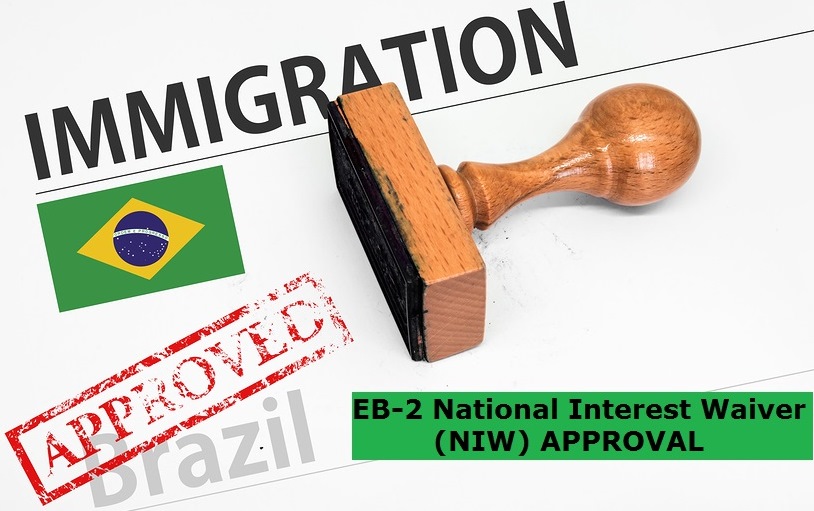
Exceptional Ability vs. Extraordinary Ability
The EB-1A category focuses on extraordinary ability, which typically requires a higher level of recognition and achievement. If you can demonstrate exceptional accomplishments and acclaim in your field, EB-1A might be suitable.
“The EB-1A category is a prestigious and highly sought-after pathway within the U.S. immigration system. It is reserved for individuals with truly extraordinary abilities and accomplishments in their respective fields. Here, we explore the nuances of the EB-1A category and what makes it a compelling choice for those who qualify:
1. Exceptional Recognition: The EB-1A category sets a high bar for eligibility, requiring applicants to demonstrate a level of recognition and achievement that goes far beyond the ordinary. It’s designed for individuals who have achieved remarkable success and acclaim in their professional endeavors.
2. Varied Fields of Expertise: One of the strengths of the EB-1A category is its inclusivity across a wide range of fields. Whether you are a renowned scientist, an accomplished artist, an innovative entrepreneur or an exceptional athlete, if you can showcase your exceptional contributions, you may be eligible.
3. Documentary Evidence: To qualify for EB-1A, applicants must provide comprehensive documentary evidence that substantiates their extraordinary abilities. This may include awards, accolades, publications, patents, memberships in prestigious organizations and other forms of recognition specific to their field.
4. No Labor Certification Required: Similar to the EB-2 NIW program, the EB-1A category does not require applicants to go through the labor certification process. This exemption significantly expedites the immigration process and allows individuals to bypass the lengthy and often cumbersome labor market testing.
5. Priority Date Availability: Another advantage of the EB-1A category is the current availability of priority dates. This means that qualified applicants may not face extensive waiting periods before they can file their green card applications, making it an attractive option for those eager to establish permanent residency in the United States.
6. Shaping the Future: Many EB-1A recipients are at the forefront of their fields, driving innovation, creativity and progress. Their contributions enrich American society and have a lasting impact on their respective industries. This aligns with the U.S.’s tradition of welcoming individuals who can help shape the nation’s future.
7. Legal Expertise Required: While the benefits of the EB-1A category are significant, the application process is complex and requires a thorough understanding of the specific criteria and documentary requirements. Seeking legal guidance from experienced immigration attorneys is often essential for a successful application.
8. Competitive Nature: Due to the stringent criteria, the EB-1A category is highly competitive. Applicants should be prepared to showcase not only their achievements but also their potential to continue making exceptional contributions in the future.
In conclusion, the EB-1A category is a pathway to permanent residency in the United States that is reserved for individuals of exceptional ability and accomplishment. It offers an opportunity for highly accomplished individuals from diverse fields to contribute their talents to the United States, enriching the nation’s cultural, scientific and economic landscape. However, it’s essential to approach the application process with thorough preparation and, when necessary, seek legal expertise to navigate its complexities successfully.”
Should you desire more in-depth information, it’s available for your perusal on this page: Frequently Asked Questions for EB2 NIW (National Interest Waiver)
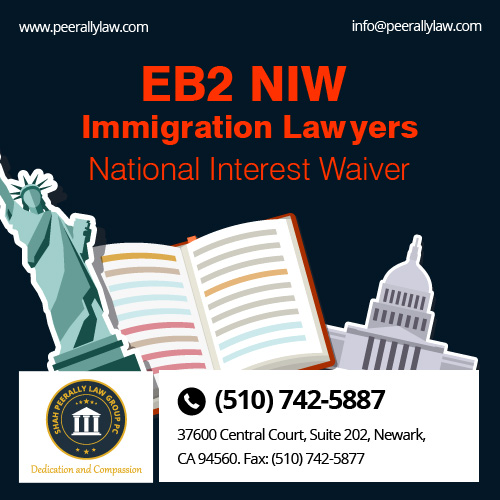
Educational Background
The EB-2 NIW program may be a better fit if you possess an advanced degree (master’s or higher) or can demonstrate exceptional ability without necessarily reaching the level of “extraordinary.”
The EB-2 NIW (Employment-Based Second Preference National Interest Waiver) program presents an attractive immigration option for individuals seeking a U.S. green card, particularly those with advanced degrees or exceptional abilities. If you fall into either of these categories, this program could be a more viable and accessible path compared to the traditional employment-based immigration routes.
One of the key advantages of the EB-2 NIW program is its flexibility. It recognizes that individuals can make significant contributions to the United States even if they don’t meet the exceptionally high standards required for the EB-1A (Extraordinary Ability) category. Here are some ways to further extend this idea:
Advanced Degrees Unlock Opportunities: Having a master’s or higher degree opens doors to the EB-2 NIW program. This can be especially advantageous for professionals in fields like science, technology, engineering and mathematics (STEM) where advanced degrees are common. It reflects the U.S. government’s recognition of the value that individuals with advanced education bring to the country’s innovation and competitiveness.
Exemplary Achievements Beyond Extraordinary: While the EB-1A category demands achievements at the very pinnacle of one’s field, the EB-2 NIW program acknowledges that exceptional contributions can manifest in various ways. These may include groundbreaking research, patents, publications or a track record of significant impact in the applicant’s field.
NIW for Entrepreneurs: The EB-2 NIW program can also be a strategic choice for entrepreneurs who want to start businesses in the United States. By demonstrating that their venture is in the national interest and has the potential to create jobs and stimulate the economy, entrepreneurs can pursue a green card through this program.
Navigating Complex Criteria: It’s essential to understand that while the EB-2 NIW program offers flexibility, the criteria can still be intricate. Applicants should be prepared to provide compelling evidence of their qualifications, contributions and the national interest their work serves. Seeking legal advice or consulting experts in immigration law can be invaluable during this process.
Timing and Priority Dates: Another crucial aspect to consider is the priority date, as visa numbers are often subject to annual limits. Understanding the visa bulletin and how priority dates can affect your green card processing timeline is essential for EB-2 NIW applicants.
In conclusion, the EB-2 NIW program serves as a valuable immigration avenue for individuals who possess advanced degrees or can demonstrate exceptional abilities that benefit the United States. It’s a pathway that recognizes the diverse ways in which individuals can contribute to the nation’s development, innovation and prosperity, without necessarily requiring the level of achievement demanded by the EB-1A category.
Should you desire more in-depth information, it’s available for your perusal on this page: EB1 vs EB2 Green Card | Differences, Processing Time [2023]

National Interest vs. Individual Excellence
The key distinction is whether your work primarily benefits the national interest of the United States (EB-2 NIW) or showcases your individual excellence and impact (EB-1A).
The distinction between the EB-2 NIW (National Interest Waiver) and EB-1A (Extraordinary Ability) visa categories is pivotal in understanding the U.S. immigration system’s nuanced approach to attracting and retaining foreign talent.
EB-2 NIW: Serving the National Interest The EB-2 NIW visa category is designed for individuals whose work directly and significantly benefits the national interest of the United States. This program recognizes that certain professionals, such as researchers, scientists, educators and healthcare experts, contribute to areas that are crucial for the country’s advancement. By waiving the labor certification requirement and the need for a specific job offer, the EB-2 NIW program aims to streamline the immigration process for these individuals, recognizing their role in driving innovation and progress that benefits the entire nation.
EB-1A: Celebrating Individual Excellence In contrast, the EB-1A visa category celebrates individual excellence and exceptional achievements. It is tailored for those who have demonstrated extraordinary ability or accomplishments in their respective fields. These individuals may include award-winning artists, groundbreaking researchers, renowned scholars or business leaders with a track record of remarkable success. The EB-1A category underscores the United States’ commitment to attracting top-tier talent that elevates its culture, economy and intellectual prowess.
Both categories play a crucial role in shaping the U.S. workforce and fostering innovation. The EB-2 NIW category prioritizes fields and professionals that directly benefit the nation’s interest, while the EB-1A category acknowledges exceptional individuals whose contributions have a broader impact. This dual approach ensures that the United States remains a dynamic and globally competitive destination for talent, embracing diversity and innovation as core drivers of its progress.
You can also read more about this here: Chapter 2 – Extraordinary Ability | USCIS

Employer Sponsorship
Both pathways offer self-petitioning options, meaning you can apply without an employer sponsor.
Both pathways, the EB-1A and EB-2 National Interest Waiver (NIW), provide unique opportunities for self-petitioning, offering a distinctive advantage for highly skilled individuals who aspire to immigrate to the United States. This means that applicants can initiate the application process independently, without the need for an employer to serve as a sponsor or petitioner. Here, we delve into the significance of self-petitioning and how it empowers individuals seeking to make the United States their new home.
1. Independence and Control: Self-petitioning grants applicants a high degree of independence and control over their immigration journey. They are not reliant on an employer’s willingness to sponsor them or navigate the complexities of labor certification processes. This autonomy can be particularly advantageous for individuals who wish to pursue their career goals, research or entrepreneurial ventures in the United States without being tied to a specific job or employer.
2. Diverse Career Paths: Self-petitioning options like the EB-1A and EB-2 NIW accommodate a wide range of career paths and professional backgrounds. This inclusivity allows individuals from diverse fields, including science, technology, arts, academia and business, to showcase their extraordinary abilities or their contributions to the national interest. It promotes diversity and innovation in the United States by attracting a broad spectrum of talents.
3. Flexibility for Entrepreneurs: Self-petitioning is particularly valuable for entrepreneurs and startup founders. It enables them to establish or expand their businesses in the United States without the constraints of employer sponsorship. Entrepreneurs can demonstrate how their innovative enterprises align with the national interest or how their extraordinary business achievements merit the EB-1A classification.
4. Recognition of Individual Excellence: Both the EB-1A and EB-2 NIW categories recognize the exceptional abilities and potential of individuals. These pathways acknowledge that outstanding individuals can significantly contribute to the United States’ progress and development, irrespective of whether they have an employer sponsor. It reinforces the idea that individual excellence is a valuable asset to the nation.
5. Encouragement of Research and Innovation: Self-petitioning options actively encourage research and innovation. Researchers, scientists and scholars can demonstrate their contributions to their fields and the potential to benefit the United States, even if they are not affiliated with a particular academic institution or employer at the time of application.
6. Easier Career Mobility: Self-petitioning offers greater career mobility within the United States. Once approved, individuals are not restricted to a specific job or employer. They have the flexibility to explore new professional opportunities, change employers or pursue entrepreneurial ventures, enhancing their ability to contribute to the nation’s economic and intellectual vitality.
In conclusion, self-petitioning options like the EB-1A and EB-2 NIW reflect the United States’ commitment to attracting exceptional talents and fostering innovation. These pathways empower individuals to initiate their immigration journey independently, providing flexibility, recognition and opportunities to contribute to the nation’s growth and development. By removing the reliance on employer sponsorship, self-petitioning opens doors to a diverse pool of talented individuals who can make significant contributions to the United States.
Looking for more insights? You’ll find them right here in our extended coverage: EB1 vs EB2 Green Card | Differences, Processing Time [2023]
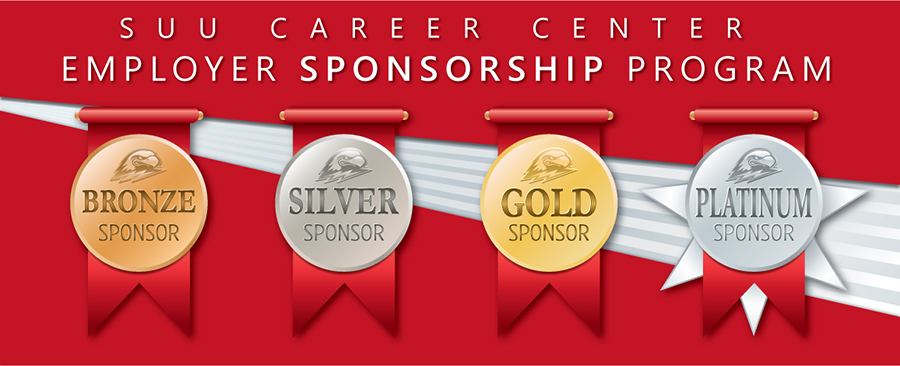
Processing Times
Both categories typically enjoy faster processing times compared to some other employment-based visas.
Indeed, one of the attractive features of both the EB-1 and EB-2 National Interest Waiver (NIW) categories is their relatively faster processing times compared to several other employment-based visa options. This expedited processing can significantly benefit applicants in various ways:
Reduced Waiting Periods: The faster processing times mean that individuals and their families can potentially secure their green cards more swiftly. This reduces the uncertainty and often lengthy waiting periods associated with other visa categories, offering more predictability for future plans.
Faster Entry to the U.S.: Once the green card is approved, it allows beneficiaries and their families to enter the United States and start their lives as permanent residents. This can be especially advantageous for those eager to begin their careers, contribute to their communities or reunite with family members already living in the U.S.
Flexibility and Career Advancement: Green card holders in the EB-1 and EB-2 NIW categories have the flexibility to pursue a wide range of job opportunities without requiring employer sponsorship or labor certification. This can be particularly beneficial for individuals seeking career advancement, changing employers or exploring entrepreneurial endeavors.
Stability and Security: Obtaining permanent residency through the EB-1 or EB-2 NIW categories offers a sense of stability and security for individuals and their families. It eliminates the need for visa renewals or extensions, reducing the administrative burden and potential disruptions to one’s life and career.
Access to Social Benefits: Permanent residents in the U.S. have access to various social benefits, including healthcare, education and certain government programs. These benefits can enhance the quality of life for individuals and their families.
Path to Citizenship: Permanent residency is often a stepping stone to U.S. citizenship. After holding a green card for a certain period, individuals may become eligible to apply for naturalization, granting them all the rights and privileges of U.S. citizens.
Family Reunification: For many individuals, obtaining a green card through the EB-1 or EB-2 NIW categories allows them to sponsor immediate family members for green cards as well, promoting family reunification.
While the EB-1 and EB-2 NIW categories offer these advantages in terms of processing times and overall benefits, it’s important to note that eligibility criteria can be stringent. Applicants must meet specific requirements and provide compelling evidence to demonstrate their qualifications. Consulting with an experienced immigration attorney can be instrumental in navigating the application process successfully and capitalizing on the expedited processing times associated with these categories.
For additional details, consider exploring the related content available here O-1 vs EB-2 NIW for Startup Founders and International Students …

Choosing between the EB-1A and EB-2 NIW categories depends on your qualifications, achievements and how your work aligns with the immigration criteria. While both pathways offer excellent opportunities for talented individuals to live and work in the United States, the decision ultimately hinges on your unique circumstances and the nature of your contributions to your field and the nation. Consulting with an immigration attorney or expert can provide further guidance in making the right choice for your immigration journey.
Selecting the most suitable immigration pathway, whether it’s the EB-1A or EB-2 NIW category, is a pivotal decision that should be tailored to your individual qualifications, achievements and the alignment of your work with immigration criteria. While both routes offer exceptional opportunities to live and work in the United States, the choice revolves around several crucial considerations:
1. Exceptional Ability vs. National Interest: The EB-1A category is designed for individuals with extraordinary abilities in their respective fields, highlighting individual achievement and recognition. In contrast, the EB-2 NIW category places emphasis on the substantial national interest served by your work, showcasing its broader impact on the United States.
2. Evidence and Documentation: Each category necessitates a distinct set of evidence and documentation to support your eligibility. EB-1A requires a compelling portfolio of your individual accomplishments, such as awards, publications and recognition. EB-2 NIW, on the other hand, focuses on your contributions to fields of national interest, emphasizing publications, citations and the influence of your work on the industry.
3. Job Offer Requirement: The EB-1A category typically requires a job offer and a U.S. employer to act as a petitioner, showcasing your intended employment in the United States. In contrast, the EB-2 NIW program allows you to self-petition, eliminating the need for a job offer or employer sponsorship.
4. Priority Dates and Backlogs: Consider the current visa bulletin and priority date backlogs for each category. Depending on your nationality and visa availability, one category may offer a more expeditious path to obtaining permanent residency.
5. Career Stage and Objectives: Your career stage and long-term objectives also play a role in the decision. If you are at an early stage in your career and wish to shape your path independently, the EB-2 NIW program may be more aligned with your goals. Conversely, if you have already achieved substantial recognition and are seeking rapid entry into the U.S., the EB-1A category might be preferable.
6. Consultation with Experts: Given the intricacies of U.S. immigration laws and the nuances of the EB-1A and EB-2 NIW categories, consulting with an immigration attorney or expert is highly advisable. They can assess your unique qualifications, provide personalized guidance and help you navigate the complexities of the application process.
Ultimately, the decision between EB-1A and EB-2 NIW hinges on a thorough evaluation of your qualifications, career trajectory and how your contributions align with the respective immigration criteria. Both categories offer exceptional opportunities and the choice should be a strategic one tailored to your individual circumstances and aspirations. By making an informed decision, you can embark on your immigration journey with confidence and clarity, knowing that your chosen pathway aligns with your goals and the impact you wish to make in the United States.
Additionally, you can find further information on this topic by visiting this page: Chapter 2 – Extraordinary Ability | USCIS
More links
To delve further into this matter, we encourage you to check out the additional resources provided here: Which category is better for a startup founder EB1A or EB2 NIW?
